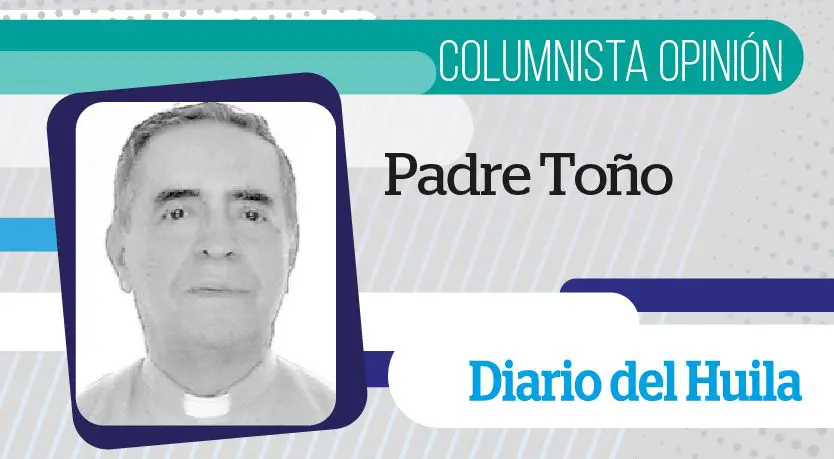Tono’s column
By Fr. Toño Parra Segura
[email protected]
The golden rule of Christianity, the program of the Sermon on the Mount, the insistence on the need for love has remained a beautiful theory that from time to time comes to light in sermons and religious preaching.
From the increasingly accentuated family conflict in the couple relationship that leads to killing the husband or wife, throwing the children out on the street, to the great social conflict of the vaunted “humanitarian agreements” without a human and Christian basis, we They show forgetfulness of the word of God.
Today the text of the first reading connects with the Gospel, due to the exhortation to holiness and love of neighbor: “Be holy because I the Lord am holy, be perfect as the heavenly Father is perfect”, confronts us with one of the more difficult consequences of the radical love of Christ that demands of us: love our enemies, do them good, bless them, not judge or condemn them.
The Corinthian community was divided over the preachers. Paul tells them: “Everything is yours, you are Christ’s and Christ is God’s.” Also, today, some groups say: with such a Father, if not with him there is no meeting, no mass, or anything.
As a general rule and as a summary of all the doctrine about charity, Saint Augustine proposes this: “Do to others all the good that we can wish for ourselves.” This is loving your neighbor as yourself.
The contradiction is that we do not know how to love ourselves, not even ourselves, nor our friends, those who live with us, or our family to fulfill what the Lord says in response to being able to achieve eternal life: “The second is similar to the first “you shall love your neighbor as yourself”. Sometimes in the same house are the enemies.
No wonder popular philosophy has invented the saying that “charity enters the house.” It is there where one must learn to love, to bless, to forgive everything and not to pay evil accounts.
The first Christians were identified by love when the pagans observed them closely: “Look how they love each other”, they are united, happy, they do not need anything and they share their goods. Could the same be said of the Christians of this century?
That experience of the Acts of the Apostles is a practical context that the practice of true charity and mercy is indeed possible.
Jesus demands that love reach enemies transparently with concrete actions: turn the other cheek, pray for them, give, accompany them, lend to them, do them good and avoid judgments and condemnations for their attitudes.
According to Saint Augustine, the formulas used by Saint Matthew, with a clear Semitic flavor, should be understood more as dispositions of the heart and not so much of external works. We don’t quite understand the difference between forgiving and forgetting. Forgiving the person who hurts us and forgiving what the person did to us are different things.
The act of forgiveness is an action, a choice, and a decision based on the Sermon on the Mount. The feeling of forgiveness requires time and the sin is not in our feelings but in our behavior; On the other hand, forgetting does not necessarily mean forgiving. People say “forget it” and leave us up in the air.
When people just forget, what they do is put trash under the rug, and this can be dangerous. The act of forgiveness is one thing and the fact of forgetting requires time because it is a process of Christian maturity. Only God can forget immediately. The terrible thing about today’s message is this: the measure that we use in the trials and sentences of others will be applied to us at the end of our trial.
Hopefully we vote the list of enemies and we don’t have the need to turn the other cheek. Let’s translate beautiful words and attitudes of interest into deeds, let’s make them open to do good without looking at who. Let us not forget, however, that social interest requires the repression and punishment of crimes as a job of public authority and legitimate defense with the proper conditions is morally valid for survival.
